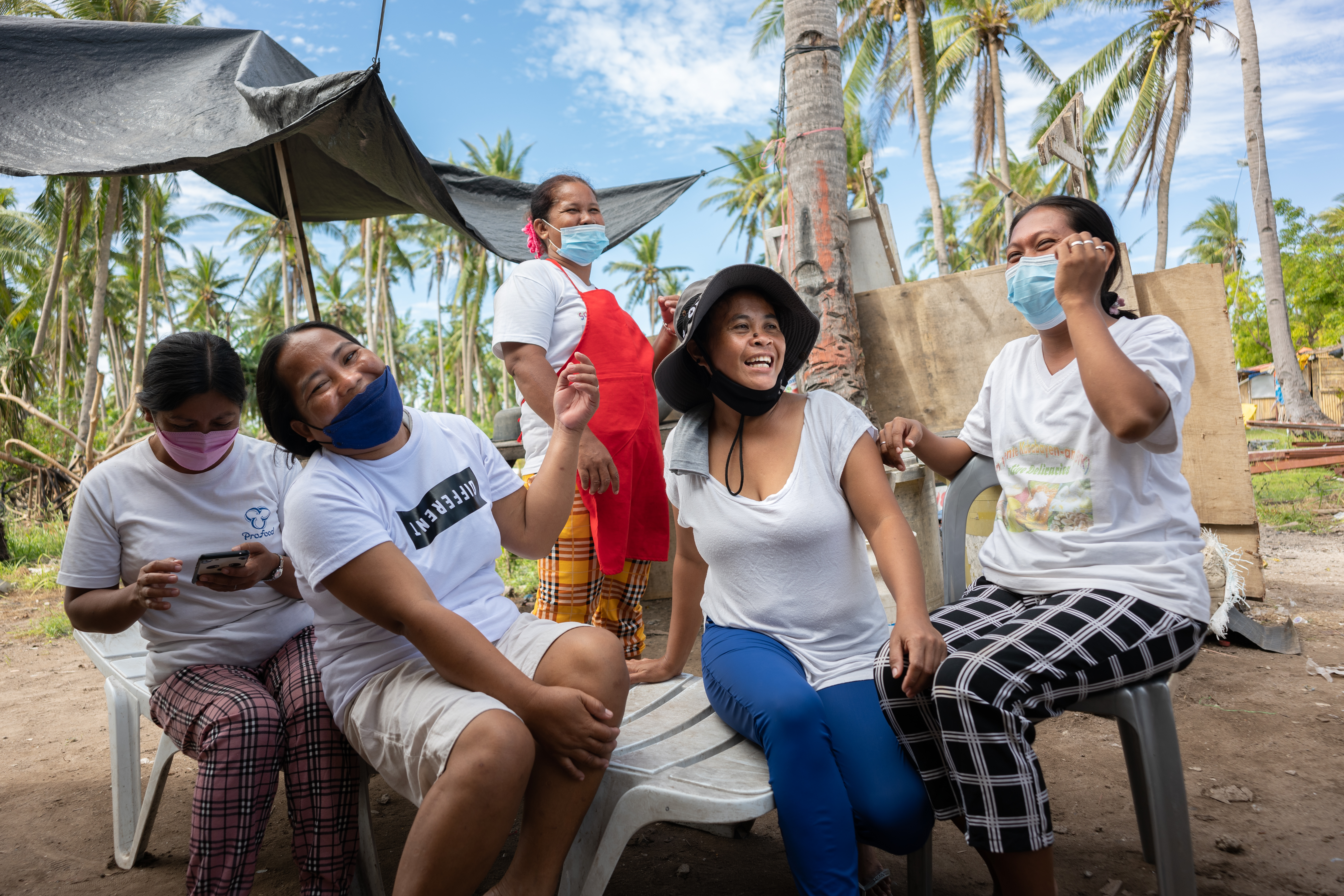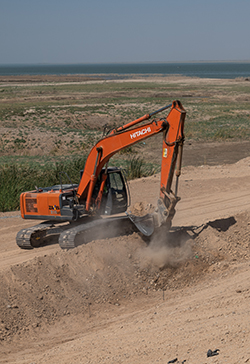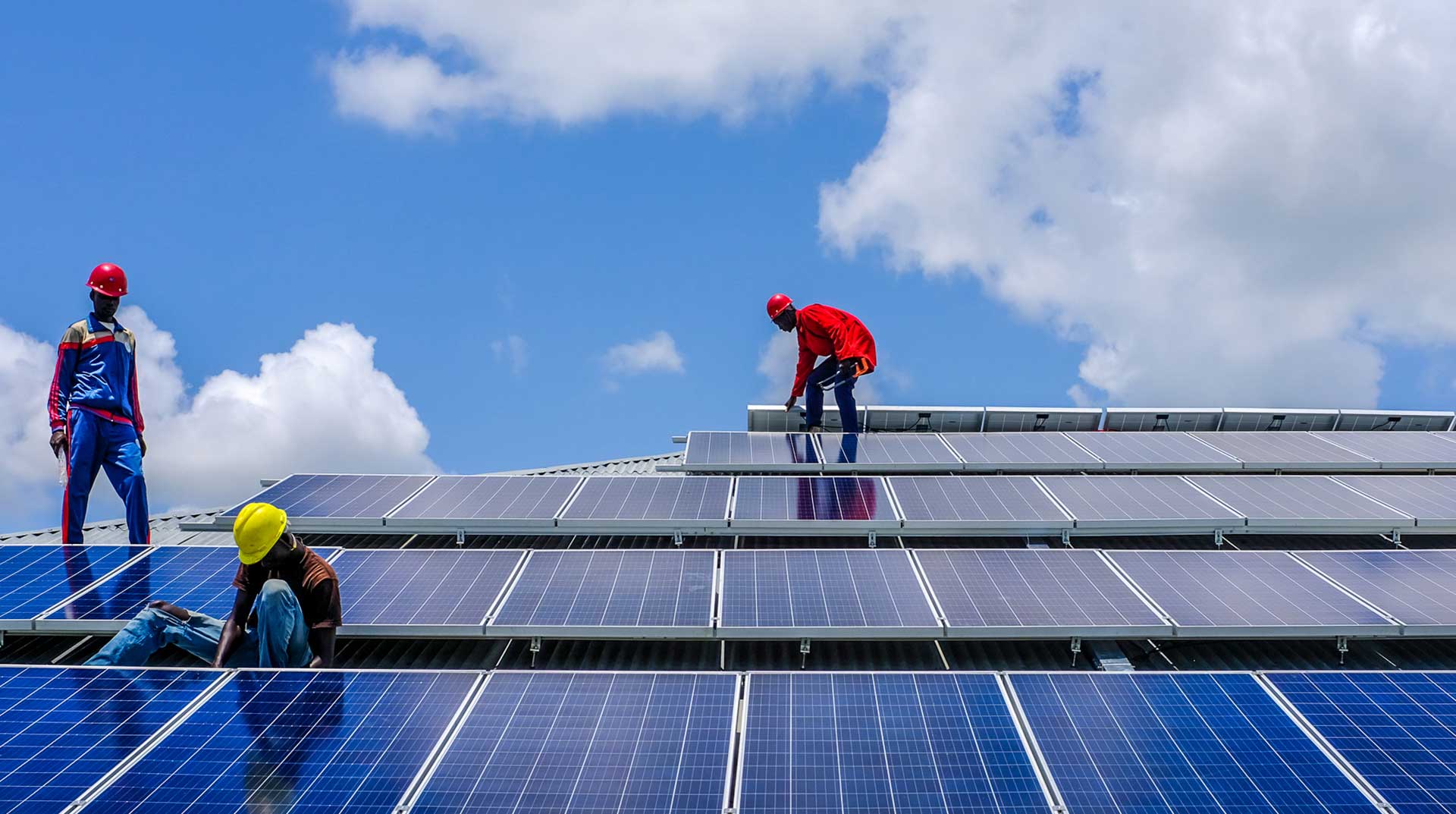
L-R: Paul Villarico, UNDP SHIELD Project Manager; Elvin Uy, Executive Director, Philippine Business for Social Good; Chris Estallo, Project Manager, National Resilience Council; Darrell Dizon, DILG Quezon Provincial Director and DILG IV-A OIC Assistant Regional Director; Ariel Iglesia, DILG IV-A Regional Director; Vinette Alcala-Naca, Provincial Board Member; Governor Helen Tan, Quezon Province; Dr. Selva Ramachandran, UNDP Resident Representative; Harry Pasimio Jr., Senior Program Officer for Humanitarian Action & Disaster Resilience, Australian Embassy in the Philippines; Mavic De Guzman, UNDP SHIELD Programme Manager; John Francis Luzano, Executive Assistant to the Governor; Dr. Mel Avenilla, PDRRMO; Chris Rollo, UN Habitat Philippines Country Program Manager
Lucena, Quezon Province – In an effort to reduce disaster risks and mitigate the effects of climate change on the provincial economy and local communities, the Provincial Government of Quezon and the United Nations Development Programme (UNDP) in the Philippines officially inked a partnership that will enhance Quezon’s climate resilience and disaster response capabilities in times of crises.
Quezon Provincial Governor Helen Tan and UNDP Philippines Resident Representative Selva Ramachandran signed a Memorandum of Understanding (MOU) for the Strengthening Institutions and Empowering Localities against Disasters and Climate Change (SHIELD) Programme that will accelerate resilience-building efforts at the local level through multi-stakeholder collaboration to unlock financing and implement risk-informed and inclusive resilience actions.
Board Member and Chairperson for the Committee on Disaster Management Vinette Alcala-Naca, Region IV-A Director Ariel Iglesia from the Department of Interior and Local Government (DILG), and Senior Program Officer Harry Pasimio Jr. of the Australian Embassy in the Philippines bore witness to the signing, along with other key officials of the province.
“Quezon Province is a highway of typhoons. Beyond preparing for safety during disasters, we hope to strengthen our economic resilience through this partnership. We want to mitigate the impacts of natural hazards on the livelihood of our local communities – especially the farmers – through different innovative solutions” noted Governor Tan during the MOU signing.
Through the strategic partnership, the Provincial Government of Quezon aims to ensure the safety and well-being of its constituents by supporting risk-based planning and enhancing its disaster preparedness and response capabilities. SHIELD will also help the provincial government promote agricultural intensification, develop alternative commodities for local communities, and encourage enterprise risk management for the province’s coconut industry, which is a key economic driver in the region.
Resident Representative Ramachandran affirmed UNDP’s commitment to strengthen Quezon Province’s resilience against natural disasters and climate change through the programme. “SHIELD will help the province co-develop tailored solutions and explore innovations to build resilience to address the unique challenges faced by Quezon Province. With the generous support of Australia, UNDP is pleased to continue its long-standing partnership with the province on disaster risk reduction, climate change, and sustainable development,” Ramachandran said.
Building long-term disaster and climate resilience has been a key priority for Australia in the Philippines and across the broader Indo-Pacific region. The Australian Government recognizes that natural disasters and climate change are “threat multipliers” that disproportionately affect the weakest and most vulnerable sectors of society. Through SHIELD, Australia has provided AUD 18 million to support the Philippine Government build institutional and community resilience to climate change and natural hazards by helping local governments pursue and invest in resilient development.
In coordination with the Department of Interior and Local Government (DILG), Office of Civil Defense (OCD), and the Department of Science and Technology (DOST), SHIELD will work in 11 of the country's most climate and disaster vulnerable provinces, as well as Metro Manila and the Bangsamoro Region in Muslim Mindanao (BARMM). The programme is being implemented by UNDP Philippines, together with its consortium partners, Consortium of Bangsamoro Civil Society, National Resilience Council, Philippine Business for Social Progress, and UN-Habitat.
####

 Locations
Locations

















